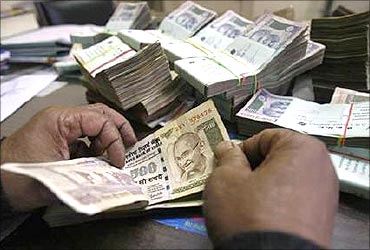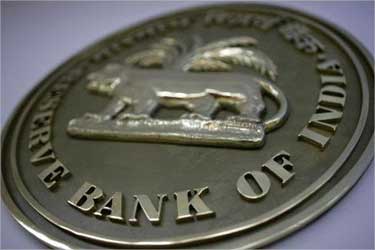Neha Pandey in Mumbai
Bengaluru-based financial planner Anil Rego believes when you start earning is when you can save the most, as there are lesser responsibilities.
But youngsters like Saroj Mohanty are more excited about living life king-size on his own terms in a new city.
"I don't want to share my accommodation, even if it means travelling and spending a large part of my salary. I plan to hire a cook, as I don't eat food from outside," says the 23-year-old engineering student, who is joining an information technology company in Hyderabad this June.
. . .
Pay off your loans first, invest later
Mohanty will travel by his bike, which means a fuel expense of Rs 2,000-2,500.
He wants to start saving alongside.
Mohanty's mandatory expenses of Rs 20,000 will erode a large part of his net monthly salary of Rs 22,000. And, this hardly leaves him with any cash in hand (Rs 2,000).
"He will have to reduce his expenses if he plans to save seriously," asserts Rego.
Otherwise, he can hardly save in the initial six months, for he needs to build an emergency corpus either through a bank recurring deposit (ICICI Bank's recurring deposit rate = six per cent for six months, 8.25 per cent for one year) or liquid funds (annual returns = 6.51 per cent).
. . .
Pay off your loans first, invest later
These avenues are giving good returns in the present high interest regime and will secure his money.
He can start putting aside Rs 1,000 for the same.
Thereafter, Mohanty can divide Rs 1,000 between equity-diversified (annual returns = 8.48 per cent) and equity-oriented balanced fund (annual returns = 8.58 per cent), since a salary raise will not be expected in the first year.
Also, Mohanty could look at a shared accommodation, cutting his expenses by one-fourth or one-third.
And, a tiffin service could be easy on his pocket, as hiring a cook would take away Rs 6,000-7,000 every month.
. . .
Pay off your loans first, invest later
This arrangement should help Mohanty save at least Rs 5,000 in an equity-diversified fund right from the start.
Smrutilekha Sarangi is also in a tight spot like Mohanty, but due to her responsibilities.
This 21-year-old biotechnology student has to repay an education loan and wants to send some money (Rs 5,000) home every month.
Sarangi has landed a job with a business processing outsourcing company in Bangalore, which will pay her Rs 20,000 a month (net).
With the education loan repayment being half of her in-hand salary, it's difficult for Sarangi to send money home, at least for a year.
. . .
Pay off your loans first, invest later
"Her priority should be to pay off the loan, as it is expensive at 12 per cent," says financial planner Anirudha Hatwalne. Sarangi has a Rs 400,000-loan.
With the remaining (Rs 1,500), she should make sure she has at least Rs 10,000 cash in her account at any point in time. This would easily take six months.
"Therefore, she should not look at investing initially. After the first six months, she can put Rs 1,000 in an equity-diversified fund with a long-term horizon or balanced fund.
For 23-year-old Snigdha Mishra, a two-year window for higher studies may not be sufficient, feels financial planner Pankaj Mathpal. After her mandatory expenses, she will be left with Rs 7,000 from the monthly salary of Rs 24,000.
. . .
Pay off your loans first, invest later
Mathpal suggests Mishra should keep three-six months expense for any emergency (through liquid funds).
Again, this will take six months, which leaves her with 18 months to save for her goal. She wants to save half of her tuition fee, but that looks impossible.
"As the time frame is short, a balanced fund will serve the purpose via a systematic investment plan of Rs 5,000," says Mathpal.
She will have to finance her studies and use her savings of two years for her expenses while studying.
. . .
Pay off your loans first, invest later
Or, she could defer her plans by a year or two. She should also buy a Rs 100,000-health cover (annual premium = Rs 1,500-2,500), as she will stay alone and medical expenses are high.
Hatwalne also warns of credit card companies luring freshers.
When in a tight monetary condition, credit cards could be used for emergency expenses, but should not become a habit and must be repaid at the earliest, as these are a high-interest loan (40-50 per cent a year).
"That's why one should always save before spending to have disciplined spending habits," adds Hatwalne.









article